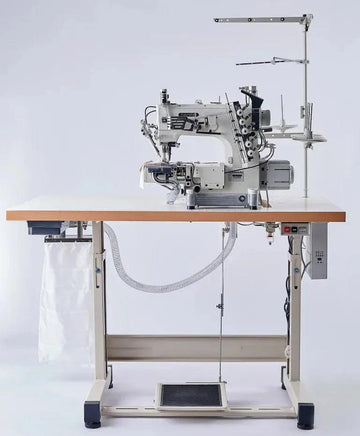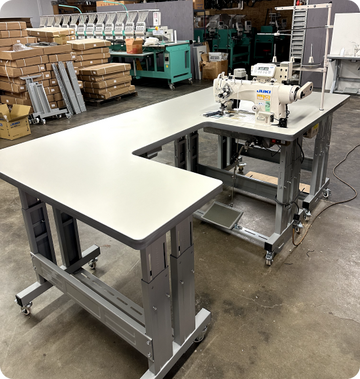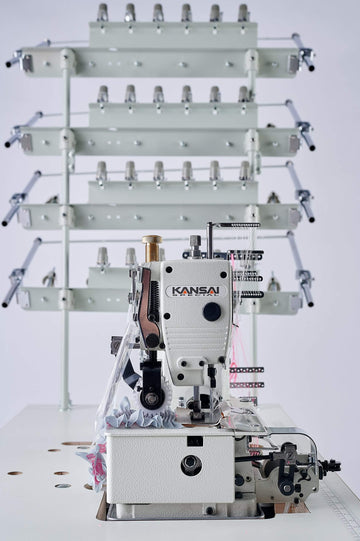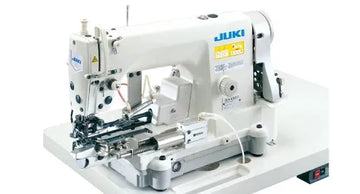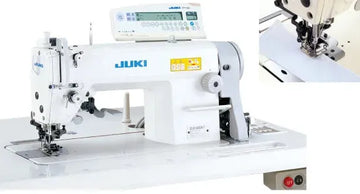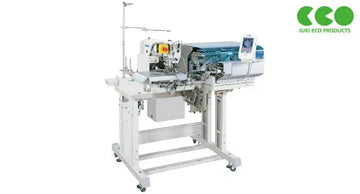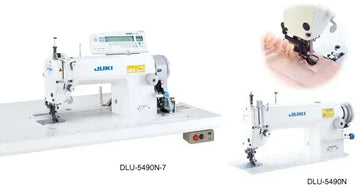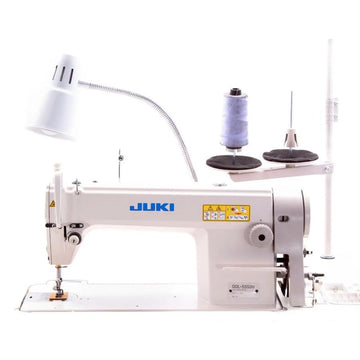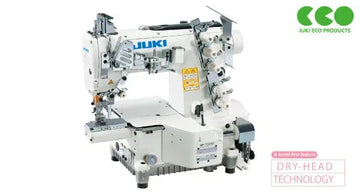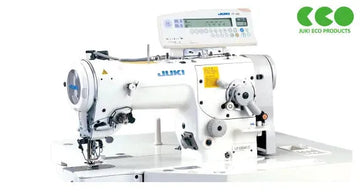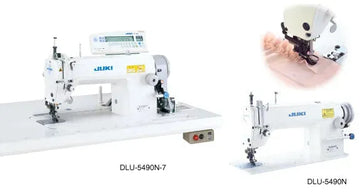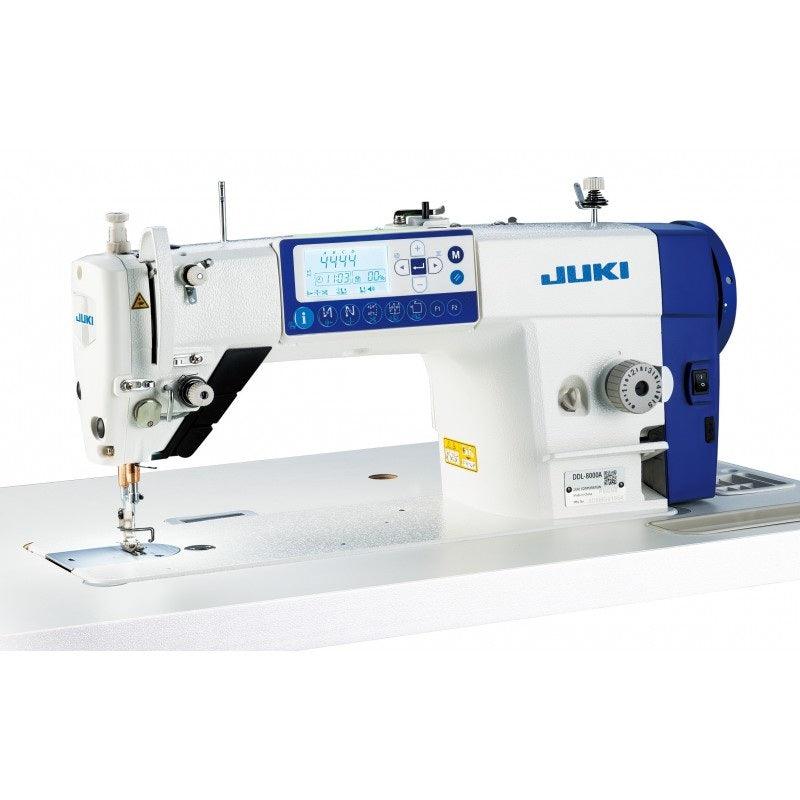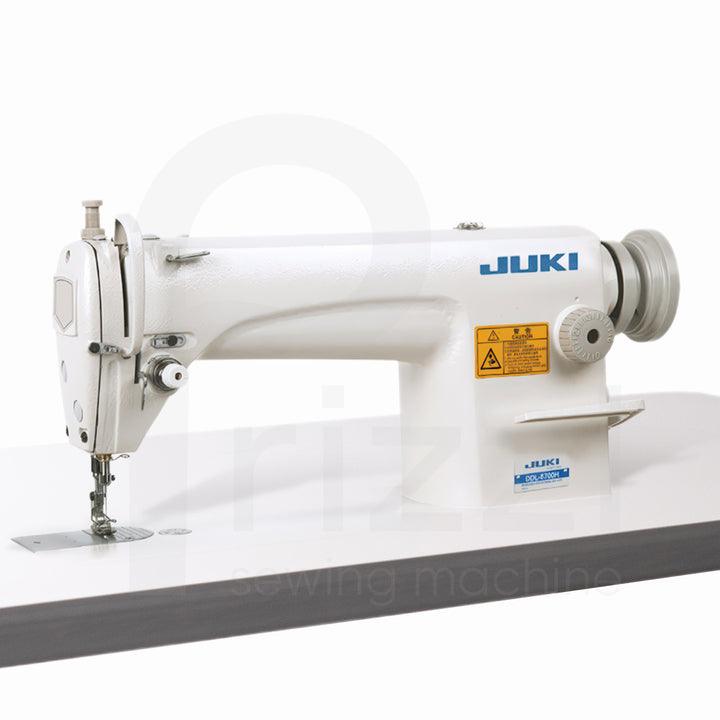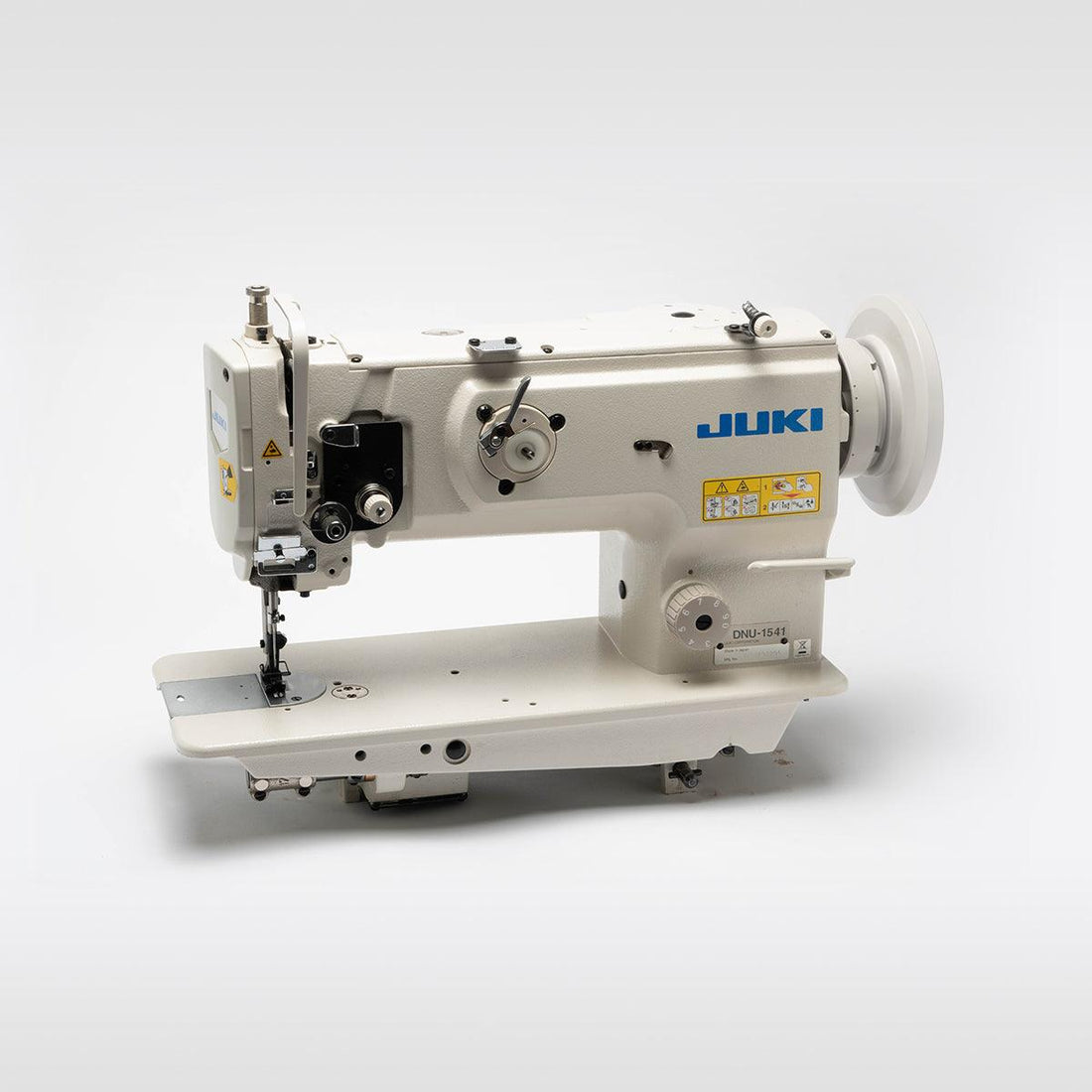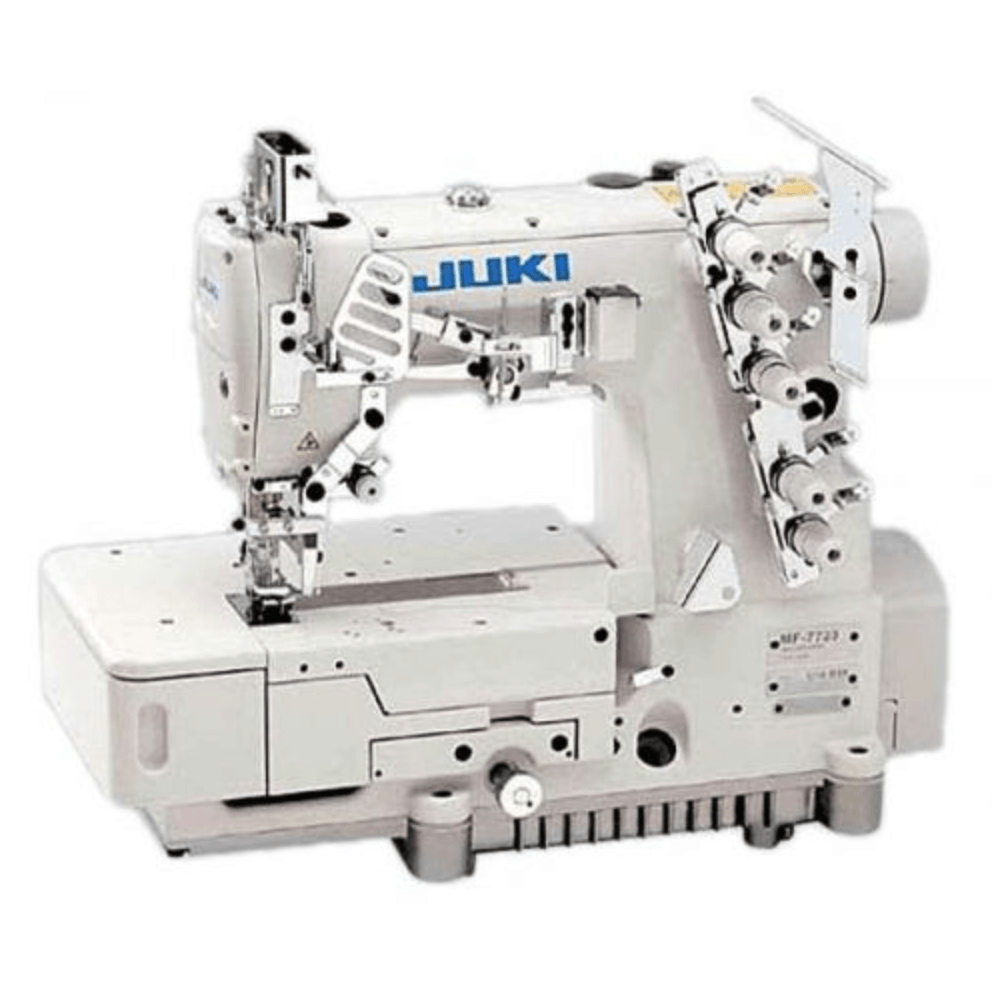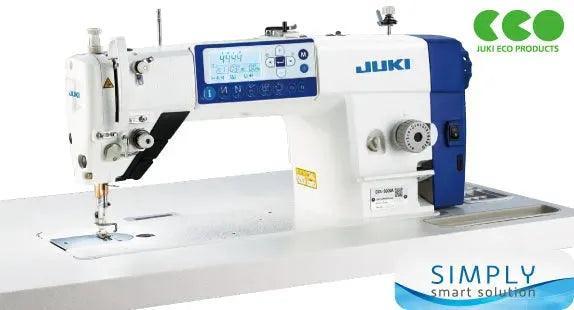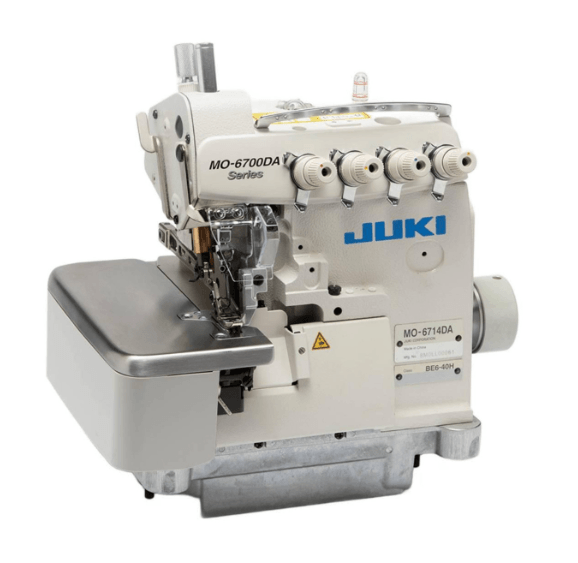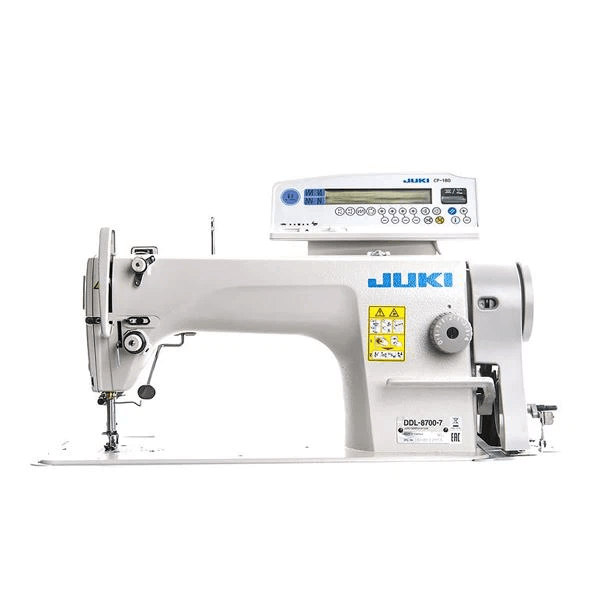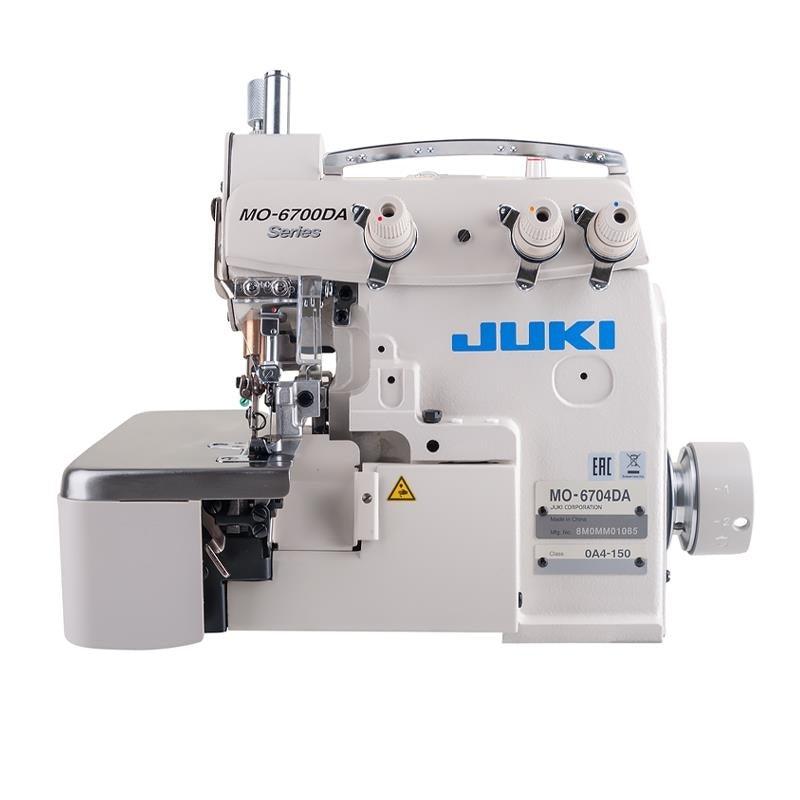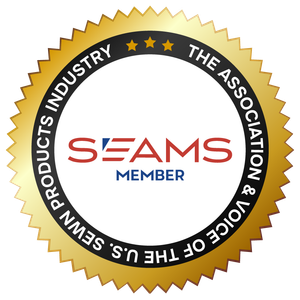JUKI
JUKI professional sewing machines have become a significant part of industrial production. Unlike classic sewing equipment, these machines can complete more complicated projects at a higher speed. Its advanced sewing machines are easy to use, which makes them suitable for home and commercial use. With the manufacturer’s warranty, you are protected from possible risks.
40+ Years of Trust
Empowering top manufacturers since 1981
KANSAI Distributor
Best specialized machines & support
Lifetime Warranty
On all our precision-crafted sewing tables
Quality Control System
Rigorously tested sewing tables for durability
Industrial Lockstitch Machine DDL-8000AB(MS) NBAKE
Industrial Lockstitch Machine DDL-8700H
Industrial Lockstitch Machine DDL-8700
Industrial Lockstitch Machine DNU-1541
Industrial Lockstitch Machine DDL-5550N
Industrial Lockstitch Machine JIN NA-11UT
Industrial Lockstitch Machine DNU-1541S
Industrial CoverStitch Machine MF7523U11B64
Industrial Lockstitch Machine JUKI DDL-8000ABSHNBAKE
Industrial Lockstitch Machine DDL9000CFMS(SH)NB/SC950A
Industrial Lockstitch Machine Juki DDL-9000C-FSH-NB/SC950A
Industrial Overlock Sewing Machine Juki МО-6714DA-BE6-50H
Industrial Lockstitch Machine Juki DDL-8700-7
Industrial Overlock Sewing Machine Juki MO6704DA
Industrial Overlock Sewing Machine JUKI MO-6804AS-0A4-150DD10S
Industrial Lockstitch Machine JIN NA-35DUT-1
Pattern Sewing Machine PS-800(S)B8045ZKW
Industrial Zigzag Machine LZ2290CS70BAK155/SC956A
Industrial Lockstitch Machine DLU-5490NBB-7WB-PF6IM92/SC920C/CP18A
Industrial CoverStitch Machine MF7923U11B(56)(64)/UT57/SC921B/CP18B
Types of Sewing Machines
Professional and industrial sewing machines have different features intended for specific purposes. Their performances usually vary, making it crucial to understand their main differences, like speed and efficiency, precision and consistency, as well as their ability to handle fabrics. The main use cases include:
Read moreTypes of Sewing Machines
Professional and industrial sewing machines have different features intended for specific purposes. Their performances usually vary, making it crucial to understand their main differences, like speed and efficiency, precision and consistency, as well as their ability to handle fabrics. The main use cases include:
The professional sewing machine JUKI can be used by small manufacturers and home sewers. It offers a great selection of stitches that can handle light and heavyweight fabrics.
The industrial sewing machine JUKI can be used by large manufacturers with intensive production processes. Due to the complex design, beginners might require specialized training before actual use.
Why Choose an Industrial or Professional Sewing Machine
Choosing the right sewing machine is important for the future success of your business. The JUKI professional sewing machine is perfect for light fabrics and simple projects. Are you planning to establish production at large volumes? Consider buying the sewing machine JUKI industrial model to meet your current needs. The main features include:
Durability and speed. Industrial sewing machines have high speeds, often reaching between 300 to 5,000 stitches per minute. Professional machines show around 800 stitches per minute. This difference determines their durability, especially when it comes to high workloads.
Precision and features. Industrial sewing machines are designed for accuracy and consistent stitch quality over long periods. This is significant in manufacturing settings where uniformity is essential.
Cost for high-volume use. Industrial sewing machines have enhanced durability, which reduces the risk of breakages or costly repairs.
Popular Models and Features
JUKI industrial sewing machines are globally recognized equipment with extensive functionality. They have multiple models for apparel manufacturing, such as:
-
LBH-1790S (buttonholing machine);
-
AMS-210EN (pattern stitching machine);
-
MB-1373 (button sewing machine);
-
DDL-9000C (automatic lockstitch machine), etc.
JUKI machines include intuitive digital interfaces that help you adjust settings conveniently. They offer advanced automation, which reduces manual labor and increases productivity. These machines also enable automatic thread trimming, programmable sewing patterns, and digital tension controls, which enhance accuracy and precision.
JUKI also has sewing machines for non-apparel use, like automotive interiors, bags, and upholstery. LU-2810 and PLC-2760 are considered to be the most common models, featuring powerful feed mechanisms, wider sewing spaces, and enhanced durability for thick materials. JUKI’s integration of smart technology makes it a leader in both apparel and non-apparel production.
Pricing Guide
JUKI industrial sewing machine prices usually range from $1,000 to $15,000. Basic lockstitch machines cost between $1,000 and $2,500. Specialized machines like buttonholing machines cost between $5,000 and $15,000.
The average JUKI industrial sewing machine price depends on multiple factors. These include the brand reputation, machine type (industrial or professional), features (manual controls or automation), and purposes (light or heavy). Machines with programmable features and touchscreen panels promise increased efficiency. The more features, the higher the price. Imagine you need a sewing machine for your small business. Buying expensive equipment doesn’t make any sense. Instead, a compact machine with limited features is required for your particular needs.
Explore the market to select the right industrial sewing machine that meets your needs. Consider your production volume, fabrics, and features you need for work. Don’t hesitate to invest money in automation and durability. This initiative allows you to make significant savings and achieve a better output.
JUKI has more expensive and more affordable industrial sewing machines, which offer different features for different needs. Basic models like DDL-8700 may cost around $1,200, while advanced models like AMS-221EN can exceed $12,000. Always assess the total cost of the potential purchase before grabbing your credit card.
Where to Buy
Check the available JUKI industrial sewing machines for sale. Go to the official websites of online retailers or visit the offices of local dealers in your area. Online retailers offer convenience, reasonable prices, and multiple models. They don’t offer personalized customer service, which might make the whole experience more disappointing. Local dealers can demonstrate the available models and provide technical support when needed. Referring to professional dealers can be a better option for both private and corporate needs.
Once you are ready to make a purchase, pay attention to the warranty terms and customer service. Make sure you can find spare parts for the selected machine in your area. Refer to the authorized distributor to access original products and get professional installation services.
Maintenance and Support
Once you decide to buy JUKI sewing machine, you should know how to maintain it properly. Here are a few simple tips to keep the machine in top condition:
-
Regular cleaning and oiling. Eliminate dust and fabric debris from the bobbin area, feed dogs, and thread path. Oil all the active parts to minimize wear.
-
Regular testing. Check for skipped stitches or thread bunching. Replace bent or old needles. Establish upper and lower thread tension based on your needs.
-
Adjust stitch length settings. Use the right needle and thread for your type of fabric.
-
Keep spare parts. Get some spare parts for quick repairs when necessary. Or check where you can get those parts in case of an emergency.
Make sure to have regular maintenance for your sewing equipment. Check if JUKI’s customer service is available in your region, so you can contact them anytime.
Conclusion
Do you need a sewing machine for your personal or business needs in South El Monte, Los Angeles, California? It’s highly recommended to consider high-quality products offered by JUKI. Make sure you know your workload and the expected results. Then, compare JUKI sewing machines prices. You may also consider machines and prices from other brands to understand today’s market offering. Make sure to find the best quality at a reasonable cost.
Read lessFAQ
How do you thread a Juki industrial sewing machine?
To thread a Juki industrial sewing machine, start by placing the spool on the thread stand and guiding the thread through the upper thread guides, tension discs, take-up lever, and needle bar thread guide before inserting it front-to-back through the needle. Always follow the specific threading diagram on your machine for accuracy.
Where are Juki sewing machines made?
Juki sewing machines are manufactured primarily in Japan, China, and Vietnam, with the headquarters in Tokyo, Japan, and production facilities spread across Asia to meet both domestic and global demand.
How do you use a Juki sewing machine?
To use a Juki sewing machine, wind and insert the bobbin, thread the top path correctly, set your stitch length and tension, then gently press the foot pedal to begin stitching, guiding the fabric steadily under the presser foot.
How do you wind a bobbin on a Juki industrial machine?
To wind a bobbin, place an empty bobbin on the bobbin winder spindle, wrap thread around it a few times, push the spindle into the engaged position, and press the foot pedal until the bobbin is evenly wound.
How much is a Juki sewing machine?
Juki sewing machine prices vary widely—from about $200–$600 for home models, $800–$2,000 for high-end domestic or semi-industrial machines, and $1,500–$5,000+ for heavy-duty industrial units.
What is the best Juki sewing machine?
The “best” Juki depends on your use: the Juki TL-2010Q is a favorite for quilting, the Juki DDL-8700 is a classic industrial straight-stitch machine, and the Juki LU-1508 is highly rated for leather and upholstery.
How do you put a needle in a Juki sewing machine?
To insert a needle, loosen the needle clamp screw, place the needle with its flat side facing the correct direction (usually to the right or back, depending on the model), push it up fully, and retighten the screw.
How do you set the timing on a Juki sewing machine?
Setting timing requires aligning the hook to meet the needle just above the needle eye when the needle rises from its lowest point. This is a precise adjustment usually done by loosening the hook assembly screws and realigning—best handled by a technician if you’re unsure.
How do you fix a Juki sewing machine?
Fixing depends on the problem—commonly cleaning out lint, rethreading correctly, adjusting tension, replacing needles, or oiling moving parts solve issues. For persistent problems like skipped stitches or timing errors, professional servicing may be required.
What is Juki?
Juki is a Japanese company and one of the world’s leading manufacturers of sewing machines, producing both home and industrial models known for durability, precision, and reliability.
How do you put a bobbin in a Juki?
To insert a bobbin, open the bobbin case or cover, place the bobbin so the thread unwinds in the correct direction, pull the thread through the slot and tension spring, and reinsert the case into the shuttle.
How do you oil a Juki industrial sewing machine?
To oil a Juki industrial machine, turn off the power, tilt back the machine head, and add sewing machine oil to the designated oiling points or reservoir. Wipe away excess oil and run a few test stitches on scrap fabric to prevent staining.
- Featured
- Best selling
- Alphabetically, A-Z
- Alphabetically, Z-A
- Price, low to high
- Price, high to low
- Date, old to new
- Date, new to old
